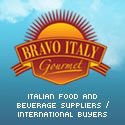
 The Azienda Agrobiologica Antica Enotria is located in the province of Foggia, just a few kilometres from the Gulf of Manfredonia, near the salt works of Margherita di Savoia, in Posta Uccello.
The Azienda Agrobiologica Antica Enotria is located in the province of Foggia, just a few kilometres from the Gulf of Manfredonia, near the salt works of Margherita di Savoia, in Posta Uccello.
On these lands, they grow indigenous grapes such as Nero di Troia, Aglianico, Montepulciano and Falanghina. They train the vines to grow in the “Pugliese trellis” and the “espalier” methods, implementing the biological farming system.
All their wines are “bottled by the winemaker” to guarantee their origin.
Antica Enotria was established in 1993 when the founder Raffaele Di Tuccio, farmer for generations, has converted his fields to organic farming, and started to vinify his grapes in the ancient Masseria Staffa, building of 1700, now fully restored.
The extension is of 40 Hectares with an annual production of 100.000 bottles of high quality wines. But the product range also includes preserves in oil of artichokes and dried tomatoes, extravergin oils and Table Olives of Cerignola all very interesting for their simplicity and authenticity.
In these fifteen years Antica Enotria has received several quality certificates from Gambero Rosso, Slow Food, Meran International Wine Festival, and other wine guides. In 2007 the Falanghina has received the Oscar Quality price from Gambero Rosso and all other wines have received good scores and reviews from Italian wines guides.
THE WINES: FALANGHINA Igt Daunia, CONTESSA STAFFA Rosato Igt Daunia, AGLIANICO Igt Puglia, NERO DI TROIA Igt Puglia, ROSSO DI CERIGNOLA doc, Rosso di Cerignola doc FALU’, SANGIOVESE Igt Puglia.
If you would like to contact this winery and find out more about their wines please do so through their web site or come along to Sitges (Barcelona) and try their wines at their table. Just enrol by completing the form!

 Vera de Estenas
Vera de Estenas 
 South Tyrol’s wine history goes back to well beyond the Roman period. This region was part of the Roman province of Rhaetia and its wines were in high demand among the eternal city’s patricians. Now, some 2000 years later the South Tyrolean wines are more popular than ever thanks to a 20 year-long strive to maximise quality in both the vineyard and cellar. This involves drastically reducing vineyard yields in favour of quality, rigorously selecting grapes and adopting winemaking techniques which express each grape’s varietal character to the full.
South Tyrol’s wine history goes back to well beyond the Roman period. This region was part of the Roman province of Rhaetia and its wines were in high demand among the eternal city’s patricians. Now, some 2000 years later the South Tyrolean wines are more popular than ever thanks to a 20 year-long strive to maximise quality in both the vineyard and cellar. This involves drastically reducing vineyard yields in favour of quality, rigorously selecting grapes and adopting winemaking techniques which express each grape’s varietal character to the full.
 Here’s some background info on the winery: Since 1777, the Maset family is closely linked to the world of wine. A legacy that resists the pass of time, generation after generation, working in the industry for over 200 years. As one of the founders of the
Here’s some background info on the winery: Since 1777, the Maset family is closely linked to the world of wine. A legacy that resists the pass of time, generation after generation, working in the industry for over 200 years. As one of the founders of the 
 The
The 
 Sadly, it seems there will not be much Spanish wine to pour into the buyer’s empty glasses during the thrid edition of the Wine
Sadly, it seems there will not be much Spanish wine to pour into the buyer’s empty glasses during the thrid edition of the Wine 
 Based in two countries: the state of Georgia and Quebec, RMB Associates Inc (Importer of Fine Wines & Spiritis) will be participating in both the Wine Pleasures Workshop:
Based in two countries: the state of Georgia and Quebec, RMB Associates Inc (Importer of Fine Wines & Spiritis) will be participating in both the Wine Pleasures Workshop: 
 The Azienda Agricola
The Azienda Agricola 
 To fully understand what we are today, it is necessary to look to our ancestors.
To fully understand what we are today, it is necessary to look to our ancestors.
 Not sure how the export works for such wines but then you can apparently find a sulphite free wine on the shelves of
Not sure how the export works for such wines but then you can apparently find a sulphite free wine on the shelves of 
